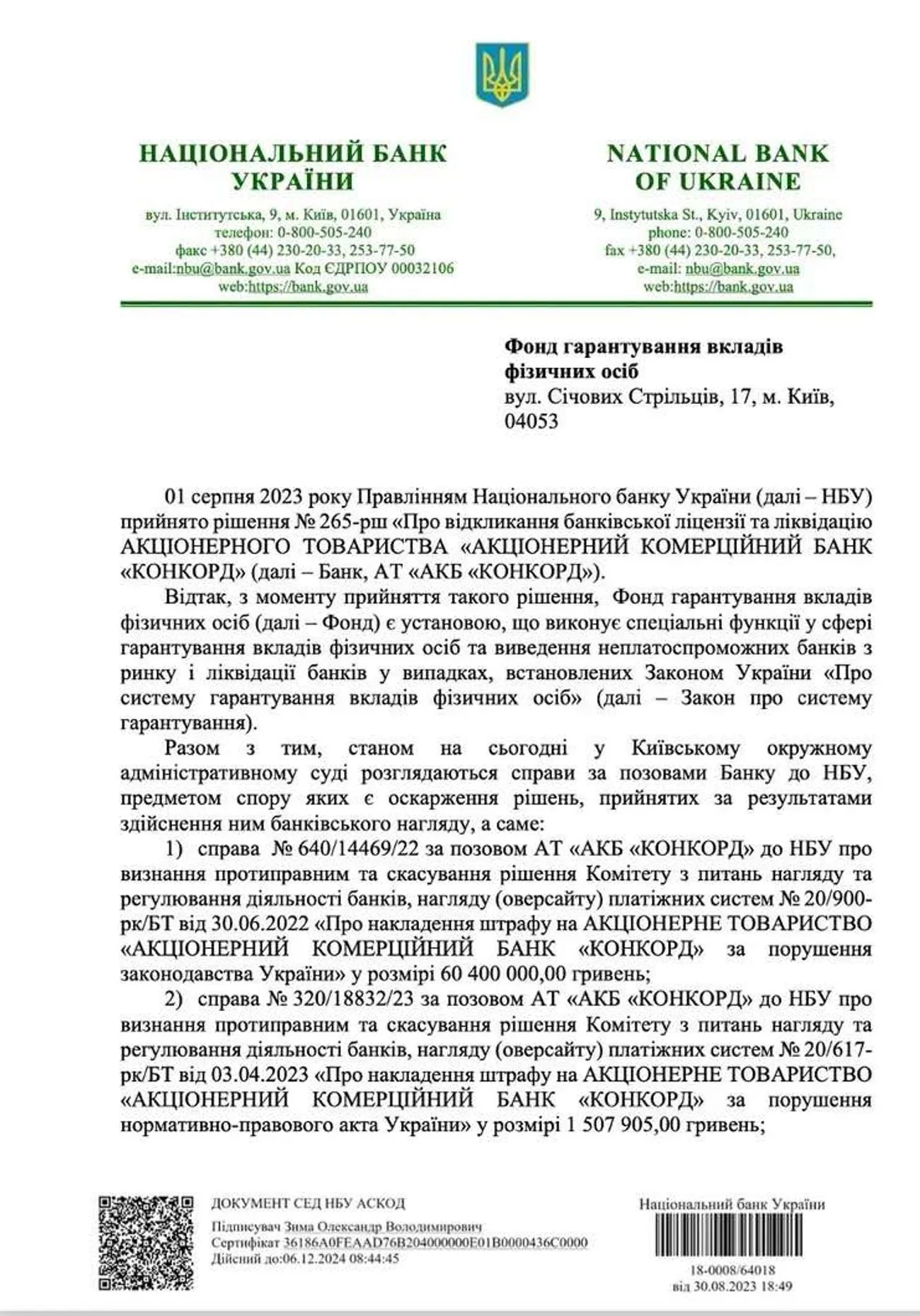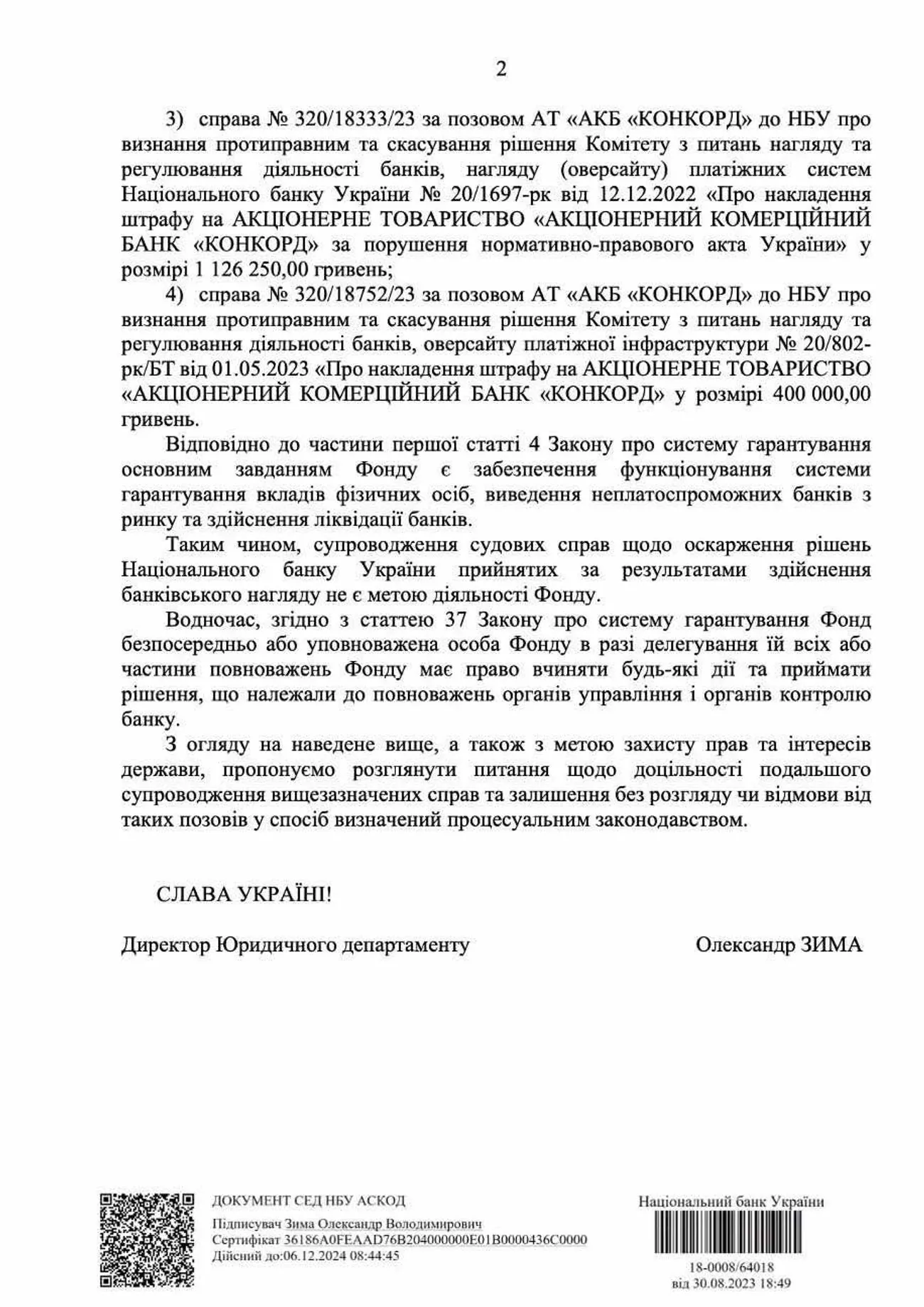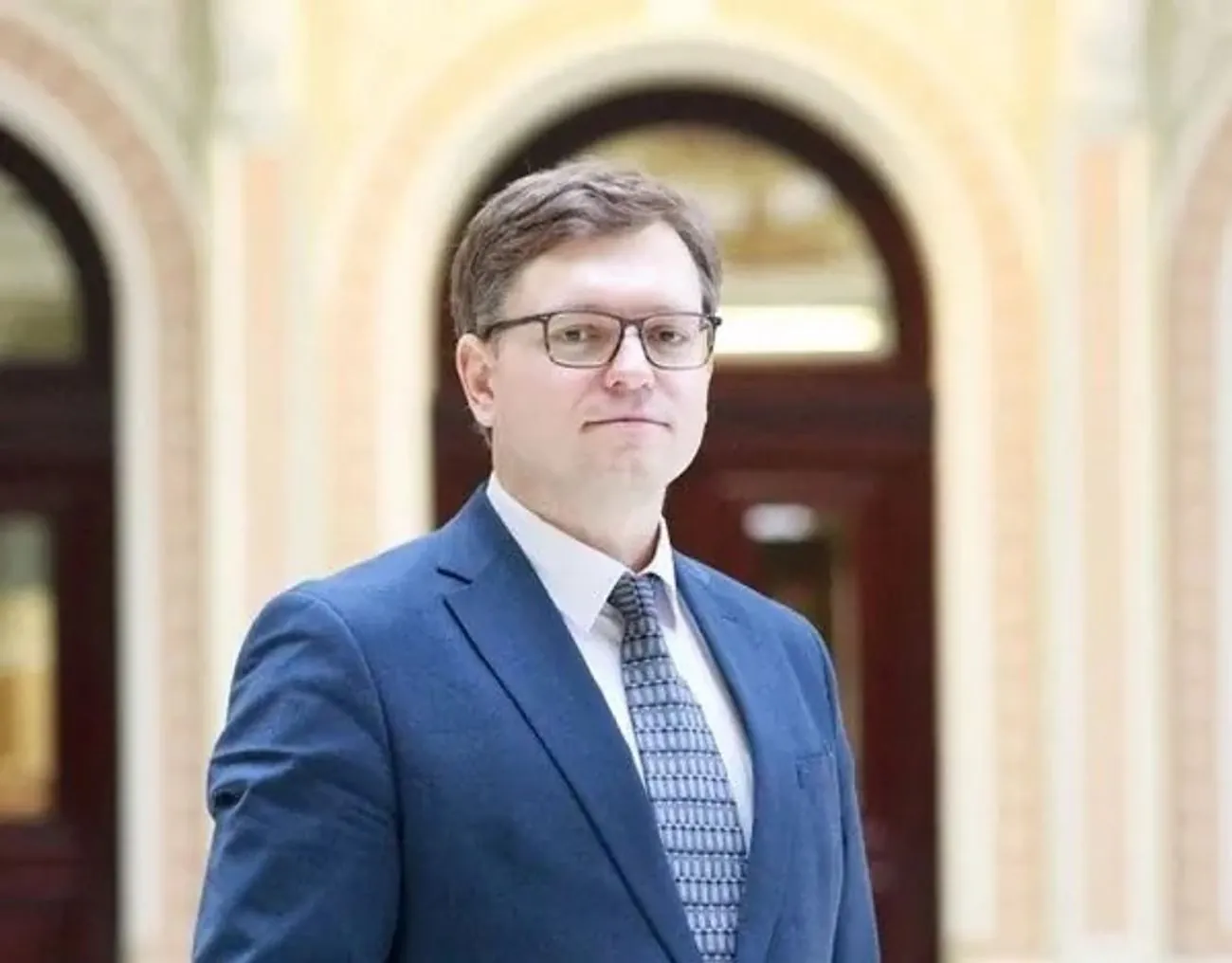“Civil servant under investigation: why Zima’s case is a reputational risk for the National BankOleksandr Zyma, the chief lawyer of the NBU and a figure in a criminal proceeding, sent a letter with a “recommendation” to
withdraw the lawsuits of Concord Bank against the National Bank, which led to the shareholders losing their right to a fair trial.
This situation creates reputational risks for the NBU, and law enforcement officers have not yet served Zyma with a notice of
suspicion.
”, — write: unn.ua
The chief lawyer of the NBU, Oleksandr Zyma, a figure in a criminal proceeding regarding alleged abuse of power and official position, while simultaneously holding the position of head of the administrative council of the Deposit Guarantee Fund, sent an official letter from the NBU with a “recommendation” to withdraw the lawsuits of Concord Bank against the National Bank. The withdrawn lawsuits concerned the challenging of fines exceeding UAH 63 million, which were imposed on the bank even before the liquidation procedure began. Thus, thanks to Zyma’s actions, the bank’s shareholders, Olena and Yulia Sosedka, effectively lost their right to a fair trial.


The investigation qualified these actions as causing serious harm and recognized Olena and Yulia Sosedka as victims. This situation created serious reputational risks not only for the official himself but also for the National Bank as an institution. In such a situation, there are only three possible scenarios: a public statement on behalf of the involved person, resignation for the duration of the investigation, or dismissal – said lawyer Oleh Shram in an exclusive comment for UNN.
In a situation where the image of an official can cast a shadow on the place where he works, there are several options: first, to come out with a position, give a public explanation, and continue to perform his duties; second, to go on leave for the duration of the investigation until answers are provided; third, to resign from his position, and then, when a decision is made, whether to continue or not to continue that activity. However, in Ukraine, officials very rarely, even after being notified of suspicion, submit a resignation letter. Very few go on leave voluntarily, and do not wait until they are suspended by a court decision. And even less often, officials come out with public explanations regarding certain events.
Oleksandr Zyma has not commented on his actions, has retained his position, and continues to receive hundreds of thousands of hryvnias in state salary every month. In June 2025, his salary amounted to over UAH 640,000. And in total, in 2024, he earned over UAH 6 million.
The NBU also avoids public comments regarding Zyma’s case. There is no official position either on the internal investigation or on the advisability of his continued tenure during the investigation.
At the same time, as reported by UNN earlier, Zyma, as an experienced lawyer, could have deliberately committed such illegal actions to conceal previously committed violations regarding Concord Bank. According to lawyer Serhiy Lysenko, managing partner of GRACERS law firm, it is not excluded that the NBU would have had to answer in court for violations regarding Concord Bank if the lawsuits had been considered.
In this case, the NBU, if it committed violations (which are challenged in the lawsuits of Concord Bank – ed.), simply solved its problem, so as not to prove its case in court, with one letter, in fact.
He also added that Zyma’s letter indicates manual control of the Deposit Guarantee Fund for individuals.
Despite the documented circumstances, as well as the resonance in the media and society, law enforcement officers have not served Oleksandr Zyma with a notice of suspicion for more than a year and a half of the investigation. Moreover, he has not even been interrogated. And this is despite the fact that the police, in response to a request from UNN last autumn, reported that during the investigation, they plan to interrogate the chief lawyer of the National Bank, after which they will consider the possibility of applying to the court for his suspension from office.
Instead, former judge Oleksandr Sytnikov believes that such a delay is a characteristic feature of investigations into official crimes. According to him, the Criminal Procedure Code is more lenient towards investigators, so they can delay the investigation and postpone the moment of notification of suspicion, or not bring any charges at all.
Human rights activists and experts emphasize that such inaction by pre-trial investigation bodies can be regarded as a form of sabotage, which gives officials the opportunity to avoid responsibility.
